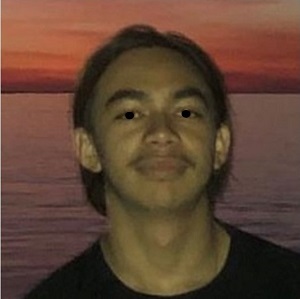
Jaaron Davis
Indigenous Health Scholarship
Curtin University, WA
Doctor of Medicine
Scholarship Awarded 2023
Sponsored by:
Dr King Gan
How will I contribute to improving Indigenous health as a qualified medical practitioner or health worker?
I grew up around the Karrajarri people of Bidgydanga community where I had witnessed many of my close families diagnosed with chronic health conditions simply because of the lack of health access and education we have within our community.
I constantly reflect upon the health of my people, which greatly disappointed me to think that my people as purely disadvantaged in this community. I have witnessed the upsetting truth between the health gap of my people, where many young, close relationships are affected.
I know I will become a Kaldadoon, Waanji and East Arrenernte doctor that my people have been needing. My purpose to becoming a doctor is what my ancestors had fought for. The had fought for the opportunities for me to become a leader in this world. I am driven to learn as much as I can from western medicine, to know one day I can break down the barriers for my people.
When I am a doctor I would like to be the professional with whom my people enjoy consulting. I want to listen to what people need, teach and empower them to take ownership of their health. I believe that education is a fundamental asset in empowering myself and my community to better health outcomes. After 9 years at boarding school in the city, I am forever grateful for the opportunity to be educated in hopes to make future changes for my people and his country.
Current Progressive Report
This semester has been incredibly rewarding both personally and professionally. One of the standout experiences was my elective placement in Arizona, USA, with the tribal health service of the Pascua Yaqui Tribe. It offered a powerful lens into how another Indigenous community is leading their own healthcare, and it reinforced my passion for creating change within my own community. Seeing the progress the Pascua Yaqui Tribe has made was deeply inspiring—it demonstrated the transformative potential of aligning health, culture, and leadership. That experience also deepened my interest in political medicine as a vehicle for structural change and community empowerment back home.
I was also privileged to take part in a leadership course during my elective, which had a lasting impact on me. It equipped me with tools to communicate effectively across cultures, lead with purpose, and shape a future where Western medicine and Indigenous knowledge work in harmony. This experience strengthened my confidence and reaffirmed my commitment to becoming a future leader in both healthcare and community advocacy.
Another significant highlight was continuing my second year of clinical placements through the Rural Clinical School, particularly returning to Broome Hospital. This year felt different—I stepped into a more confident and active role within the team. The familiarity from last year gave me the foundation to take initiative, work more independently, and continue developing the practical skills I’ll need as I transition into internship.
Academically, I set out to complete as many clinical requirements as early as possible to reduce stress later in the year. Through forward planning, regular feedback-seeking, and proactive engagement during placements, I stayed on top of my logs and requirements. I also applied for an internship with WA Country Health Service and was fortunate to be accepted. Starting my internship at Broome Hospital feels like a full-circle moment—it’s a setting I know well, and one where I feel deeply connected to the people and community.
Looking ahead to next semester, I’m focused on preparing for final exams and OSCEs while continuing to build clinical confidence. I’ve developed a structured study plan to refine both my reasoning and practical skills. I’m also eager to improve my efficiency in managing patient loads, prioritising tasks, and structuring my day like a junior doctor. One area I hope to improve is making more time for consistent study outside of placement hours, especially as the demands of exam preparation grow.
There were also challenges this semester—mainly balancing the academic workload with the emotional weight that often comes with clinical placements. I coped by debriefing with peers, journaling reflectively, and maintaining a stable routine. These practices helped me process complex experiences and remain grounded.
After completing my studies, I’ll be starting my internship with WA Country Health Service at Broome Hospital. In the long term, I aspire to work as a doctor in rural and remote Aboriginal communities. I’m passionate about delivering culturally safe care, supporting community-led health initiatives, and advocating for better access and equity in healthcare for our mob. My goal is to serve meaningfully and to contribute to a stronger, healthier future for Indigenous people.